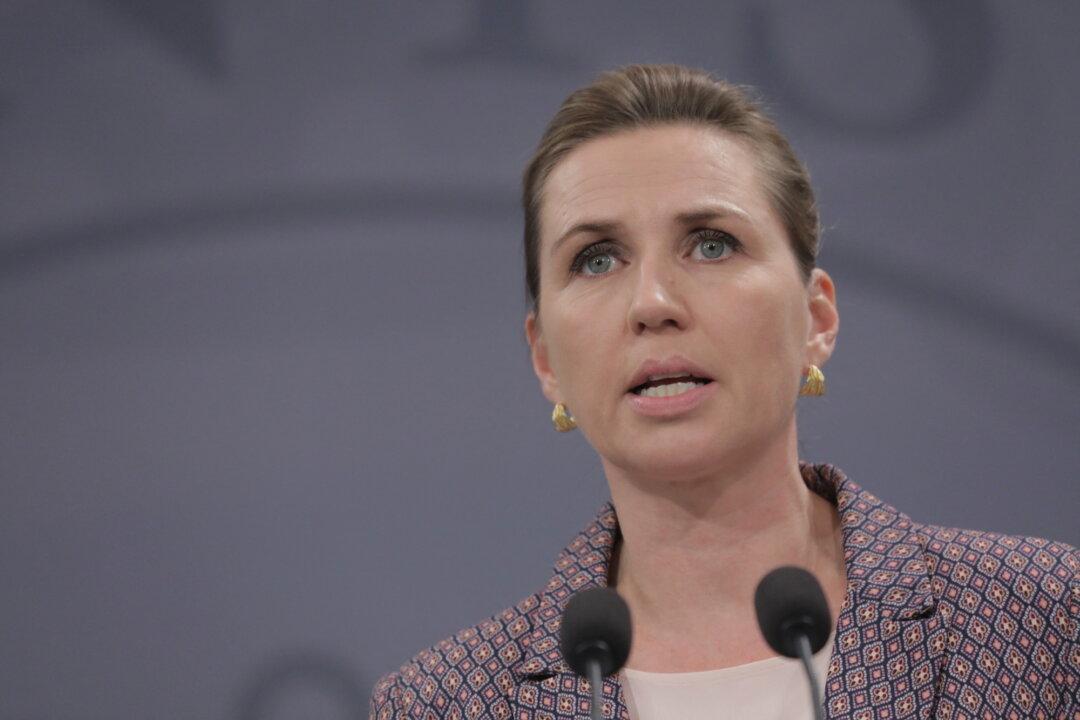Authorities in Denmark on Friday proposed new restrictions to limit the spread of Omicron, including masking up in public places and closing conference centers and entertainment venues, though the government shied away from imposing a full lockdown.
“In record time, the rules of the game have again been changed,” Denmark’s Prime Minister Mette Frederiksen said at a news conference, with Danish health officials saying Omicron accounts for around 20 percent of all new daily registered infections.





